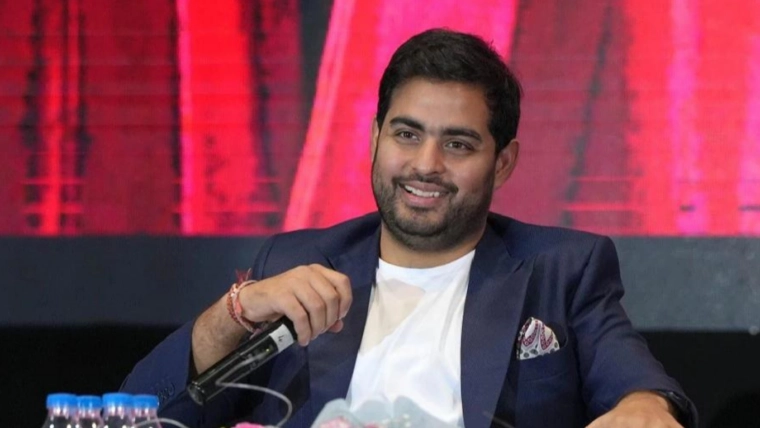Implementing a digital shift
Indian instructive organizations are making the genuinely necessary move from utilizing conventional methods for educating to ones that include innovation. Let’s check to Implementing a digital shift .
NCR-based Genesis Global School has everything that would draw in a cutting edge parent – virtual labs, mechanical autonomy labs, STEM lab, computerized apparatuses, savvy study halls, and so on. Essentially, it guarantees that innovation is joined in each part of an understudy and instructor’s learning cycle.
Be that as it may, it isn’t the only one in enjoying some real success on innovation. Tamil Nadu-based SRM Institute of Science and Technology – a regarded University — utilizes mixed learnings and flipped study halls position (a guidance system that turns around the conventional methods for educating by conveying content on the web and even outside of homerooms).
These models characterize the changing substance of India’s training framework – regardless of whether on the outskirts. “Our training framework is separated into two classes – one for the wealthy and another for the general population. That thus changes over into two classifications – the advanced well-offs and the computerized those who lack wealth,” says HarivanshChaturvedi, Director of Birla Institute of Management Technology, and Executive President of Education Promotion Society for India, Delhi Chapter.
What Chaturvedi says truly underlines the separation between instruction in private and government schools in India. While most government schools battle to get the fundamental framework set up, tuition-based schools are rethinking what acceptable school training would mean for your kid.
As Madhur Gupta, Vice-Principal (CBSE), Genesis Global School says, “From sending schoolwork to report cards, we depend on innovation. We likewise map understudy progress with the assistance of computerized stages.” Similar to Gupta, Sandeep Sancheti, Vice-Chancellor, SRM Institute of Science and Technology, as well, accept that innovation is basic for instruction. “We ought to be exploratory with it and not limit study hall instructing to communicate strategies. At first, the expense of innovation may appear to be high, however, over the long haul it cuts down the general expense.”
Cheerfully, things are changing in government schools, as well. Albeit most government schools and establishments have a ton of getting up to speed to do as far as grasping innovation, there is an expansion in appropriation. Homerooms are moving from chalk-and-duster ones to those with smartboards. While some administration schools are presenting keen classes, some others are teaming up with new companies to present advanced devices. Indeed, even organizations are approaching to do their bit. The Piramal School of Leadership (PSL), an instruction activity of Piramal Foundation, has begun a preparation office in Jhunjhunu, Rajasthan to improve initiative abilities of area training officials, principals and educators. It likewise underpins sending versatile innovation arrangements by giving appraisal based advanced learning and remote help. Aditya Natraj, Founder and Director of Kaivalya Education Foundation (KEF) and PSL, says, “The activity has so far affected 23,000+ instructors in 25+ regions, and shrewd classes have been introduced in 600+ schools in 25 regions”.
Chief specialized organizations like the IITs are holding onto tech too, although step by step. “We have begun fusing tech in our showing cycles, yet the procedure is moderate. Various offices have various methodologies for innovation. I believe it’s an issue of idleness, yet numerous intercessions are in the process to transform it,” says Professor Amit Gupta, Head of Educational Technologies Service Center, IIT-Delhi.
Countless edtech new companies have likewise risen, with items running from entire school arrangements trying to incorporate total frameworks of learning and appraisal, to free applications focused on educators to create explicit abilities and information. With more than 18 million month to month dynamic clients (one million in India), Khan Academy – a US-based non-benefit association – is one such player giving tests, instructional recordings and articles on a scope of scholastic subjects. Its ‘Khan for Educators’ foundation assists instructors with staying aware of the occasions. “Innovation gets responsibility at the top administration level and comprehends that tech is significant,” says Sandeep Bapna, MD, Khan Academy India.
Specialists dissipate the dread that innovation – accepted to be one of the greatest empowering influences of instruction – may adversely affect physical schools. “Not in the least. Advanced won’t rip apart the current structure of learning, and will never make schools unimportant? On the off chance that anything, it will just make the learning establishments progressively effective,” says AnandNagarajan, Founder of Dexler Education.
Be that as it may, despite the energy around grasping innovation in training, schools and universities discover implementation troublesome. Reasons? “There are numerous Indian schools and universities with great tech infra, yet would they say they are putting it to best utilize? Are the educators sufficiently talented to take on innovation? Dreading innovation may remove their occupations, they aren’t a lot of eager about letting machines lead the pack,” says Narayanan Ramaswamy, Partner and Head-Education, KPMG India.
Also, India’s training area is still vigorously constrained by the administration with its schools, universities and foundations, where even the smallest change in teaching method is stuck informality for quite a long time. “The incongruity is, considerably in the wake of finishing the D.El.Ed course (Diploma in Elementary Education) — affirmed by National Council for Teacher Education and MHRD — from the National Institute of Open School, numerous educators are not ready to utilize it as a ‘legitimate’ capability to sit for enlistment tests,” says J.S. Rajput, previous Director of NCERT and as of now India’s delegate to the Executive Board of UNESCO. “There must be coordinated effort between the Center and the state governments.” He firmly accepts that the utilization of innovation is vital in government schools for rustic individuals to keep pace with time.
Innovation may set aside some effort to reform Indian training, especially because of the reservations and procedures required around it, however, without a doubt is affecting. With innovation, India has begun reconsidering the structure of physical learning spaces to oblige new frameworks. The ‘one size fits all’ encouraging model in India is being enhanced by the versatile and customized learning teaching methods. It’s time we put tech to its best utilize.


